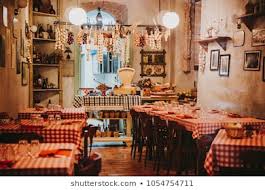Restaurant Reviewing and Social Media
by Jan
 The rise of social media and reviewing platforms has complicated the way restaurants are marketed and reviewed. If diners have had one too many drinks, they go home and might be feeling emboldened to start typing on one of the platforms such as Zomato, Yelp, Michelin or TripAdvisor. And the better the restaurant is rated the further up the ranking the restaurant goes.
The rise of social media and reviewing platforms has complicated the way restaurants are marketed and reviewed. If diners have had one too many drinks, they go home and might be feeling emboldened to start typing on one of the platforms such as Zomato, Yelp, Michelin or TripAdvisor. And the better the restaurant is rated the further up the ranking the restaurant goes.
Some customers just cannot be pleased no matter what, but their comments are still all part of the mix. Even though these platforms offer more democratic expression than one reviewer from a major daily newspaper, the potential diner looking for a decent feed gets the good with the bad.
It has been noted that receiving an accolade from a restaurant reviewing organisation that it does increase business.
So, to win an accolade, serving good food is not quite enough; location is also important. And when the accolade is won, the best advice to chefs is to stay true to their passion and don’t increase their prices.
Michelin began as a tyre company in 1889 in France. They started the guide to encourage people to motor around the country and go to good restaurants. And of course, buy more tyres.
It is said that the problem with restaurant awards is that they prefer fine dining rather than other styles, that the winning chefs are mostly men, mostly white, and sometimes lacking in cuisine diversity.
And these sites tend to favour established restaurants over new ones, traditional cuisines over anything too inventive, and Eurocentric over other cuisines. And strangely, an award-winning restaurant can rank very low in the ratings.
One restaurant reviewing organisation offered a definition of good food: it’s more than taste and technique; it should also be about the fishermen, the farmers, the soil, the water, the treatment of animals, the treatment of restaurant staff, and the budget allocations. In other words, put the recognition back where it should be: with chefs and restaurants, not the whim of an editor, an awards committee, or algorithms. This kind of recognition helps chefs demonstrate that they care about these aspects, including the diner.
When I was a chef I remember someone saying “You’re cooking for the 5 per cent of diners who do know the difference, not the 95 percent who don’t”.
User-generated review sites are mostly used by international travellers, and will go to great lengths to capture eyeballs, and beat the game. These sites have booking facilities and reviewing facilities, and therefore can collect data. And restaurants can edge towards the top of the list of recommendations. In other words, average customers with average knowledge about food can demand excellence, but the chef has no real right of reply or influence over the reviewing site. Instead, it encourages the chef to engage in the rat race of climbing up the site’s ladder of recommendations.
If there are too many negative reviews, some waiters have been fired. Also, thousands of reviews have been analysed, and many fake reviews have been posted. These sites address all negative reviews, by contacting the diners and encouraging them back. Suspect reviews can come from the restaurant itself, or other restaurants.
Michelin has removed a star from the 3-star Auberge du Pont de Collonges, one of Chef Paul Bocuse’s restaurants, which it held since 1965. Also, Marc Veyrat’s restaurant, Manigod, lost a star for allegedly putting cheddar in a cheese soufflé. In support of Bocuse, described the demotion of his restaurant as “pathetic”.
In the last few years, a few French chefs have relinquished their 3-star status due to the stress of constant judgement by restaurant reviewers. They just want to serve excellent food without the constant pressure and anxiety.
Despite the irritation of some restaurateurs, this year Michelin Guide introduced another category which is for sustainability. According to Eater, it is for restaurants “who have taken responsibility by preserving resources and embracing biodiversity, reducing food waste and reducing the consumption of non-renewable energy.” But, as Michelin is a tyre company, it did not seem to discourage diners from driving around the countryside, increasing CO2 emissions.